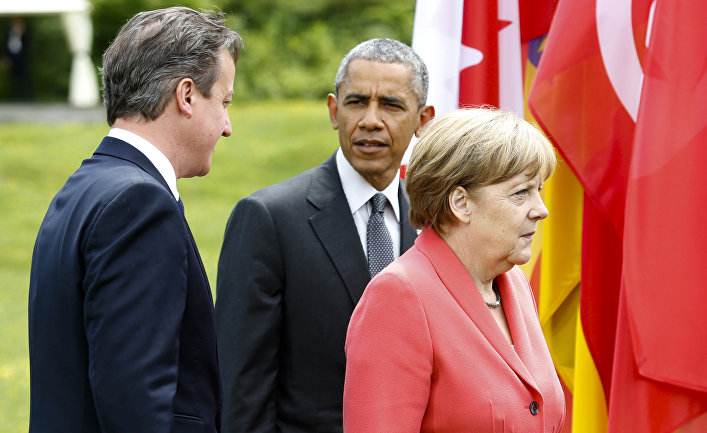For all countries in the West Balkans this would mean closer ties and, finally, joining the EU — including further development of civil rights and market economies, but also “forcing” of the processes which, especially for Serbia, won’t be easy to come to terms with: “pacification”, as the West sees it, of the Serbian nationalism, entering NATO, effectively “killing off” Republika Srpska in Bosnia and Herzegovina, and maintaining „happy Albanians“ in all countries where they can be found.
This region is the last remaining “unfinished business” of the Western allies, says Ivan Vejvoda from the „Marshall Foundation”. This is clearly visible bearing in mind that in July the most powerful woman in the world, Angela Merkel, visits Belgrade and some days later an anniversary of the massacre in Srebrenica.
Merkel asks Serbia to not impede the inclusion of Kosovo in the United Nations at the end of the Brussels process, but also to distance itself from Milorad Dodik, president of Republika Srpska. It should also support the stronger central government in Bosnia — which is to say, further weakening of Republika Srpska.
Merkel also visits Tirana and Sarajevo. She demands from Edi Rama, the Albanian Prime Minister, to tone down the nationalist, islamic radicalism of Albanians in Macedonia and Kosovo, and work on its relationship with Serbia. The Bosnians, on the other hand, are warned that it's time to stop the ethnic tensions and endemic corruption, and start working — on their way to EU.
Germany should, in exchange, support constitutional changes and further weakening of Srpska.
Economically the strongest country of the EU, Germany “took over”the Balkans somewhere around 2012. This is all being done in close cooperation with the US, but Great Britain also helps the cause — it decided to “sponsor” the Srebrenica resolution in the UN Security Council.
There is reason to believe that Srebrenica, as a symbol of suffering of Bosnian people in the nineties under the Bosnian Serb Army rule, will become the trigger for an “offensive” against Republika Srpska.
It seems that Serbia is on a seemingly “road with no return” towards the EU — Yelena Guskova from the Russian Academy of Sciences says that RS and its leader Milorad Dodik are seen as the “last standing brink of defense” of Serbian nationalism in the Balkans.
London admits it!
The British government confirmed what „Blic“ wrote earlier — that UN SC is working on a draft resolution on Srebrenica. The text is still being agreed upon “with partners” in the UN. Serbian chief of diplomacy Ivica Dačić said that he expects UK Embassy’s response on it intentions regarding the resolution. Dačić said that he already asked the UK Ambassador to inform Serbian authorities on Britain’s intentions.






